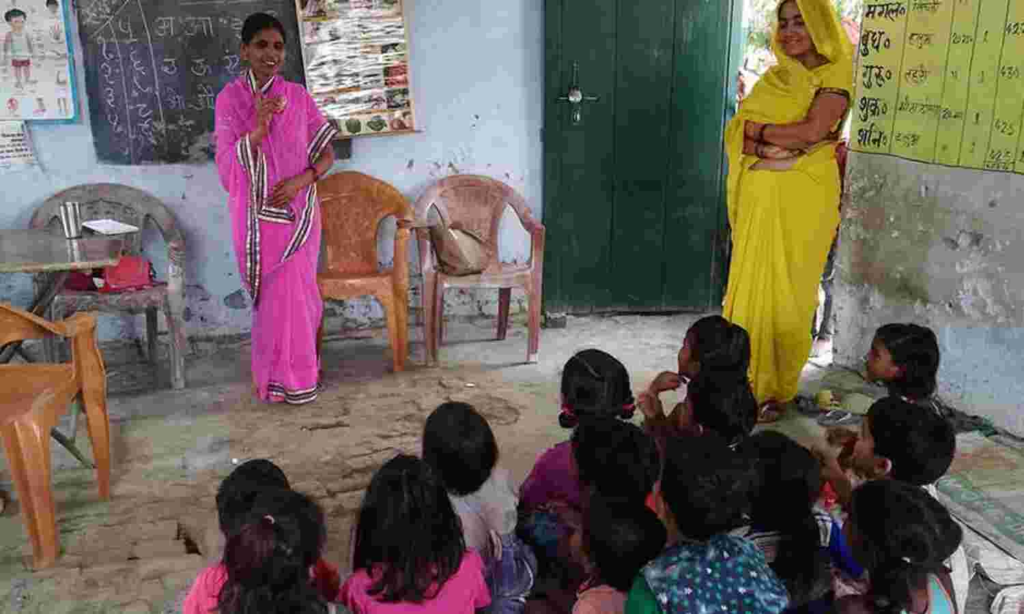The Indian government has implemented various initiatives and support mechanisms to strengthen the Integrated Child Development Services (ICDS) program, which aims to address the holistic development of children below the age of six. These initiatives focus on enhancing the quality of ICDS services, expanding its reach, and ensuring its sustainability.

Key Government Initiatives in ICDS:
- National Nutrition Mission (POSHAN Abhiyaan): Launched in 2017, POSHAN Abhiyaan aims to reduce malnutrition among children, pregnant women, and lactating mothers. It focuses on improving dietary practices, addressing anemia, and promoting early childhood care.
- Early Childhood Care and Education (ECCE): Recognizing the importance of early childhood development, the government has emphasized the ECCE component of ICDS. This includes improving preschool education, providing age-appropriate learning materials, and training Anganwadi workers (AWW) in ECCE pedagogy.
- Anganwadi Services Improvement Scheme (ASIS): ASIS aims to strengthen the infrastructure and facilities of Anganwadi centers (AWCs), the primary delivery points for ICDS services. This includes providing clean drinking water, sanitation facilities, and adequate play areas.
- ICDS Online Management System (OMS): OMS is a digital platform that facilitates the management of ICDS data, including child registration, attendance tracking, and nutrition monitoring. This enhances transparency and accountability in the program.
- Strengthening Capacity of ICDS Functionaries: The government is investing in training and capacity building for ICDS functionaries, including AWWs, supervisors, and program officers. This includes training in child development, nutrition, health, and communication skills.
- Community Engagement and Outreach: ICDS promotes community participation and outreach to ensure that all eligible children and their families benefit from the program. This includes organizing awareness campaigns, engaging with local communities, and addressing gender and social inequities.
- Convergence with Other Schemes: ICDS is being integrated with other government schemes, such as the National Health Mission (NHM), to ensure comprehensive care for children. This includes collaboration with health departments for immunization, growth monitoring, and early detection of health issues.
- Monitoring and Evaluation: The government has established a robust monitoring and evaluation framework for ICDS to track progress, identify gaps, and make evidence-based decisions. This includes regular data collection, analysis, and reporting.
These initiatives demonstrate the Indian government’s commitment to strengthening ICDS and ensuring that children have access to the services they need to thrive. By addressing child malnutrition, providing early childhood education, and strengthening ICDS infrastructure, the government is investing in the future of India’s children.